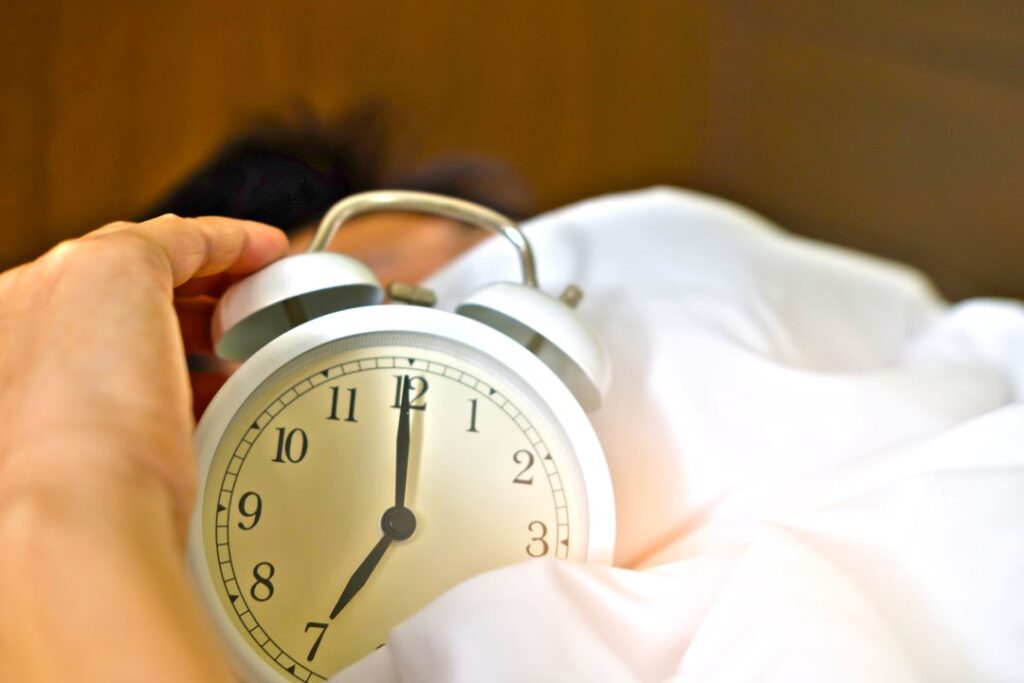Sleep Myths Unpacked: The Truth About the Eight-Hour Rule
We’ve all heard the age-old adage that we need eight hours of sleep every night to function at our best.
But is this really true? In today’s fast-paced society, many of us struggle to squeeze in eight hours of sleep, let alone have the luxury of sleeping for a full eight hours every night.
In this blog post, we’ll unpack the myth of eight hours of sleep and explore what you really need to know about getting a good night’s rest.
From the science behind sleep to tips for improving your sleep quality, we’ll cover everything you need to know so you can wake up feeling refreshed and ready to take on the day.
So, grab your favorite blanket and get cozy, it’s time to dive into the world of sleep!
How Much Sleep Do You Really Need?
The notion that “eight hours of sleep is a must” has been around for quite some time.
However, it is essential to understand that this belief is not entirely accurate.
While eight hours of sleep is the recommended amount for adults, it is not a universal truth.
It is essential to consider individual needs and lifestyles when determining how much sleep one needs.
The amount of sleep required varies from person to person, and some people function well with less than eight hours of sleep.
Similarly, some people may require more than eight hours of sleep to function optimally.

The belief that there is a magic number when it comes to sleep is nothing but a myth that needs to be debunked.
Instead, it is crucial to listen to our bodies, pay attention to our sleep patterns, and prioritize getting enough rest so we can be at our best.
The notion that we must get eight hours of sleep every night is a myth.
However, it is true that people who get less than seven hours of sleep may be at greater risk for health problems such as obesity, diabetes, depression, and cognitive decline.
Several scientific studies have shown that insufficient sleep can wreak havoc on the body’s natural rhythms, leading to a host of negative consequences.
It is essential to note that the amount of sleep needed varies from person to person, and not everyone needs eight hours of sleep every night.
Nonetheless, it is crucial to prioritize getting adequate amounts of high-quality sleep to maintain optimal physical and mental health.
So, while eight hours of sleep may be a myth, getting enough sleep is not – it is a vital part of a healthy lifestyle.
Meanwhile, the notion that eight hours of sleep is a must has been ingrained in our minds for years. However, recent research has found that the quality of our sleep is just as significant as the quantity.
It has been shown that ensuring we get good, restful sleep can have numerous benefits for our overall well-being.
Improved concentration, increased energy levels, and reduced stress are just some of the advantages that come from prioritizing quality sleep.
It’s clear that we should focus on both the duration and quality of our sleep, as both factors have a significant impact on our daily lives. By making a conscious effort to improve our sleep habits, we can reap countless benefits and lead happier, healthier lives.
Debunking the Myth of Eight Hours of Sleep
For decades, the belief that eight hours of sleep is necessary for adults to stay healthy and alert has been a pervasive myth.
While a good night’s sleep is crucial for optimal health, the amount of sleep needed varies from person to person.
In fact, recent studies show that the ideal amount of sleep differs depending on age, lifestyle, and genetics. Some individuals may function well on as little as six hours of sleep per night, while others may require up to ten hours.

It’s important to remember that quality of sleep is just as important as quantity, and factors such as sleep environment and stress levels can greatly impact the quality of rest.
So rather than blindly adhering to the eight-hour rule, it’s important to listen to your body and adjust your sleep habits accordingly.
For many years, it was commonly believed that getting a full eight hours of sleep every night was an absolute must for maintaining good health and performance throughout the day.
However, recent studies have proven this to be nothing more than a myth.
In fact, the amount of sleep needed can vary significantly from person to person depending on a variety of factors such as age, lifestyle, and overall health.
Some people may require less than eight hours of sleep to function at their best while others may need more.
It is important to listen to your body and determine how much sleep you personally need to feel rested and alert during the day.
Rather than striving for a one-size-fits-all approach to sleep, it is important to prioritize individual needs and create a routine that works best for you.
So, while eight hours may be a common benchmark, it is not a rule that everyone must abide by in order to achieve optimal health and wellness.
In conclusion, while eight hours of sleep may be the commonly suggested amount for optimal health, it is important to remember that each individual is unique.
The right amount of sleep can vary based on lifestyle, needs, and genetic predisposition.
It is crucial to listen to one’s body and prioritize sleep as needed.
For some, seven hours of sleep may be sufficient, while others may require more than eight hours to maintain their well-being.
Ultimately, achieving the right amount of sleep is essential for overall health and should be taken seriously.
Wrapping up
In conclusion, while eight hours of sleep may be the ideal scenario for some individuals, it’s not necessarily the magic number for everyone.
Instead, it’s important to prioritize your own personal sleep needs and stick to a consistent sleep schedule that works for you.
By understanding the science behind sleep and implementing some of the tips and tricks we’ve discussed, you can improve your sleep quality and wake up feeling refreshed and ready to tackle whatever the day has in store.
So, here’s to getting the sleep you need and deserve!
Share this content:













